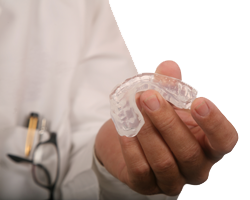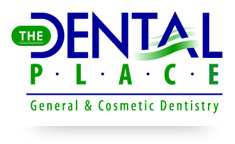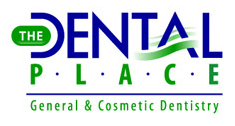 Teeth grinding is one of the most common unconscious behaviors, and for most, it is not a serious concern. When this happens at night, however, it can become a problem for both the appearance and function of a smile, even when it is otherwise healthy. This is because the damage that can be done during sleep can be direct and repeated over the course of hours.
Teeth grinding is one of the most common unconscious behaviors, and for most, it is not a serious concern. When this happens at night, however, it can become a problem for both the appearance and function of a smile, even when it is otherwise healthy. This is because the damage that can be done during sleep can be direct and repeated over the course of hours.
If you have noticed that you are waking up with a sore jaw, or if you are experiencing morning headaches, it may be a sign that bruxism is affecting your oral health. This condition can lead to enamel erosion and a shift in your alignment, so it is important to speak with a trusted dentist about your options in treatment.
Are you experiencing the signs of bruxism?
Speak with your local Grand Prairie, TX dental team at 972-264-5795 and schedule a time for a consultation. Protecting your smile from your overnight teeth grinding is possible through a gentle, BPA-free mouthguard that prevents your enamel from colliding during sleep. Our team can help you to keep your smile safe from bruxism wear, and it all starts with a visit to our office!
What Is Bruxism?
In short, bruxism is the term for chronic teeth grinding. It can also include other related activities, such as jaw clenching and gnashing, as they fall under the same umbrella term. This condition can become a serious concern for both your oral health, as well as the appearance of your smile.
Why Does Bruxism Happen?
While we know much about bruxism, its cause is not absolutely clear. There are a few different factors that can be at play in causing teeth grinding, but these do not necessarily mean that someone will experience it, even when they exhibit these characteristics. Risk factors may be physical, psychological, and some medications can also increase the possibility of developing sleep bruxism. It also appears that genetic predisposition can lead to an elevated risk of experiencing overnight teeth grinding.
Sometimes, the cause of bruxism can be difficult to identify. Common physical risk factors for bruxism include GERD (Gastroesophageal Reflux Disease) and sleep apnea. Psychological causes such as anxiety and stress can also lead to an increase in the possibility that someone will grind their teeth during sleep. Others may develop bruxism because of certain medications or the use of tobacco or alcohol.
Overnight Teeth Grinding Can Damage Your Smile
Sleep bruxism can cause serious damage to your teeth and your orthodontic alignment. When you start to notice the signs of bruxism, talk to a trusted team of dental professionals about what’s going on.
One symptom that is commonly experienced by patients who grind their teeth is pain in the jaw or neck upon waking up in the morning. If you find that you have a dull headache in the morning, it could be a sign that your jaw has been overactive during sleep. This can sometimes feel like an earache, when in actuality, it is your temporomandibular joint that is giving you trouble.
If you have noticed a change in your bite or the shape of your teeth, it is time to talk to your dentist about your smile. While this is not a guarantee that bruxism is the cause of any changes, it is important to learn why your teeth have shifted or begun to wear.
Treatment Is Simple And Achievable
When you experience the signs and symptoms of sleep bruxism, talking to our oral health team is a positive first step. If Dr. Maxey determines that you have been grinding your teeth overnight, there is an effective form of treatment that requires no surgery and just a bit of effort. This is known as a night guard, which is an oral appliance that is specifically designed to protect your smile from the damage associated with teeth grinding.
With a night guard, you simply pop in your oral appliance as you sleep over night. The soft BPA-free material prevents your teeth from collision overnight, which is often enough to stop your enamel erosion. It can also help you to experience a better night of sleep!
Grind Your Teeth In Your Sleep? Dr. Maxey Can Help!
If you are waking up with a sore jaw or a dull headache, make an appointment with our team to learn whether sleep bruxism is holding you back.
To find out more about night guards as a treatment for bruxism, schedule an appointment with Dr. Maxey, DDS. Your overnight teeth grinding can cause serious enamel erosion that can affect both your oral health and your appearance. Schedule your appointment for a consultation at our Grand Prairie, TX office today at 972-264-5795!

